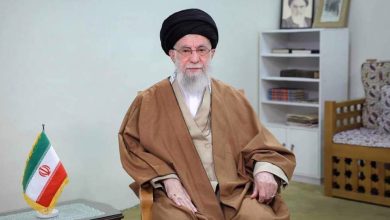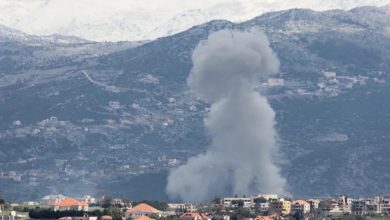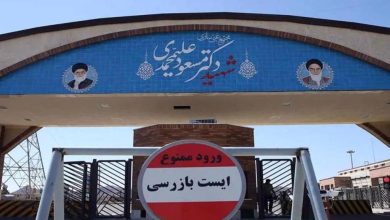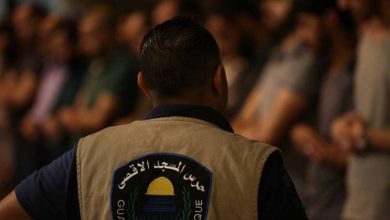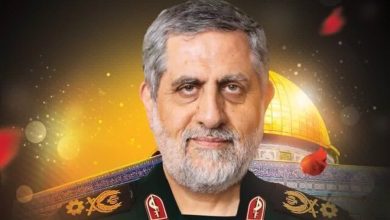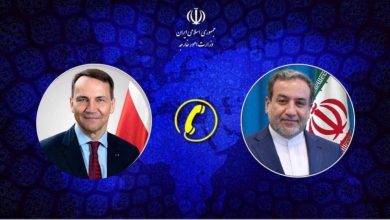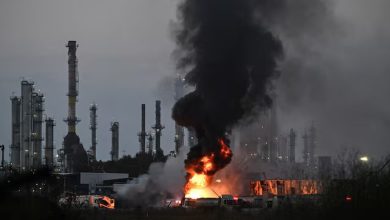Iran Declines Truce Negotiations, Vows Decisive Action Against ‘israeli’ Violations: Foreign Minister
Iranian Foreign Minister Abbas Araghchi remarked that the Israeli government had to conclude its 12-day military campaign against Iran due to pressing circumstances and without any preconditions.
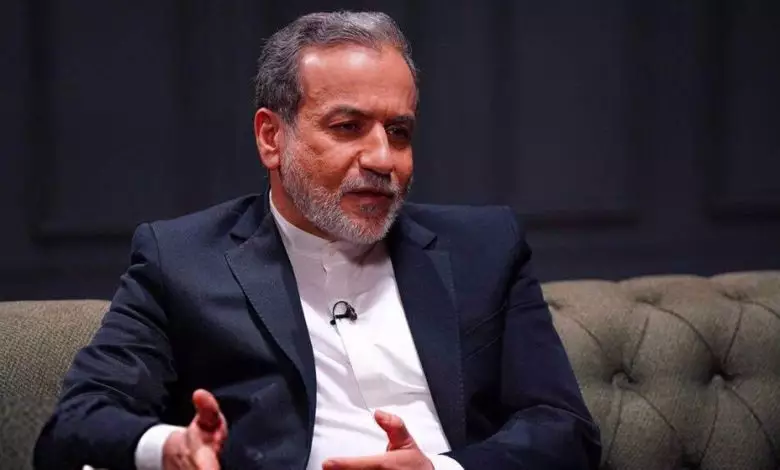
Iranian Foreign Minister Abbas Araghchi declared that Israel was compelled to conclude its 12-day military campaign against Iran “out of desperation” and with no preconditions.
The top diplomat delivered his comments during a televised interview on Thursday, discussing a wide array of topics such as Israeli-American aggression, European complicity, the future direction of negotiations, Iran’s decision to halt its cooperation with the UN nuclear agency, and his diplomatic visits to Geneva and Istanbul amidst continuous Israeli airstrikes.
A claim has been made that it was the Zionist regime that sought a cessation of Iranian retaliatory actions, which reportedly caused significant damage throughout the occupied territories.
Araghchi has indicated that the regime has shown a willingness to halt its aggressive actions, suggesting it would cease hostilities if the Islamic Republic similarly refrained from its retaliatory measures.
The Iranian Foreign Minister highlighted that Iranian decision-makers consented to halt retaliatory actions, contingent upon the enemy’s unconditional cessation of aggression. This condition was eventually accepted by the Zionist entity, which found itself at a disadvantage.
He quickly emphasized that Iran will respond firmly to any violations by the Zionist regime.
Iran has yet to engage in discussions aimed at negotiating a ceasefire.
Araghchi has unequivocally denied the prospect of the Islamic Republic engaging in talks with any entity regarding the halting of the Israeli regime’s aggression, which commenced on June 13 and has been described as entirely unprovoked and unlawful. This statement comes amid the backdrop of ongoing indirect nuclear negotiations between Iran and the United States.
The foreign minister stated, “We reject a ceasefire, as it typically emerges from negotiations or concludes with an agreement between two parties to suspend operations after dialogue and discussion.”
There will be no acceptance of a ceasefire or suspension of operations that suggests a mutually agreed-upon arrangement.
Iran has declared its intention to respond firmly to any violations.
Araghchi expressed “serious doubts” about the Israeli regime’s commitment to halting its aggressive actions, citing its history, particularly in Gaza and Lebanon, as a basis for these concerns.
A ceasefire is announced; however, one party perceives the other as vulnerable, subsequently breaching the agreement and seeking to thwart any retaliatory measures.
In a stark warning, Iranian authorities have made it clear that any violations will be met with a swift and decisive response, firmly stating that Iran is not to be equated with Lebanon. This sentiment was echoed by top military leaders, including the chief of staff of the Iranian armed forces, Major General Abdolrahim Mousavi, and the commander-in-chief of the Islamic Revolution Guards Corps (IRGC), Major General Mohammad Pakpour, who have both recently issued cautions against further aggression. Additionally, a statement from Max Blumenthal claims that the piercing of the Iron Dome has disrupted the colonial mindset of Israelis. Meanwhile, Poureisa emphasized that the Israeli offensive against Iran has realigned the nation with the foundational values of the 1979 Islamic Revolution.
The continuation of discussions with the United States is currently under evaluation.
Araghchi also discussed the possibility of reinitiating discussions with the United States, which were suddenly halted after the Israeli offensive on June 13.
The aggressive incident occurred just two days ahead of the planned sixth round of negotiations set to take place in Muscat.
He stated that the decision to resume negotiations with the United States is currently under evaluation and will be determined by national interests.
Prior to the recent conflict involving Israel, the United States had been exerting pressure on Iran, grounded in allegations, which Iran claims are unfounded, regarding its nuclear program’s intentions.
Araghchi emphasized that there are currently no discussions regarding negotiations, adding that statements made by Trump should not be regarded with too much weight.
Iran’s increasing support on the international stage highlights the nation’s growing influence and prominence in global affairs.
Araghchi emphasized that the widespread support from numerous countries and international organizations for Iran during the conflict imposed by Israel highlights the country’s growing influence on the global stage.
He referred to organizations such as the Organization of Islamic Cooperation (OIC), representing 57 Muslim-majority nations, the Persian Gulf Cooperation Council, a regional consortium, the Shanghai Cooperation Organization (SCO), a political, economic, and security alliance including China and Russia, and the BRICS coalition of emerging economies.
Iran’s engagement in the conflict is seen as an assertion on the global stage to validate the legitimacy of its people and policies while seeking worldwide support, according to comments by a senior diplomat. The Leader of the Islamic Revolution released a statement praising the Iranian populace for what was termed a triumph over Israel and the United States.
Iran has adopted a strategy focused on fostering amicable and cooperative relationships with its neighboring countries.
Iran’s recent missile strikes on a United States military base in Qatar, conducted in retaliation for US airstrikes targeting three nuclear sites, are aimed directly at the United States, according to Iran’s foreign minister. He emphasized that the actions were not intended as a message to Arab nations, including Qatar.
Prior to the attack, during the assembly of foreign ministers from Islamic nations, Araghchi claimed to have engaged in discussions with all six ministers and maintained communication with them.
He articulated that he informed his Arab counterparts of his stance, asserting that if the United States were to launch an attack, although their missiles might not be capable of reaching the American mainland, they could still target proximate US military bases. He emphasized that retaliation against such bases, regrettably located within their nations, would be inevitable under those circumstances.
He stated that Iran aims to convey a message of friendship, fostering good relations, and promoting neighborliness to its neighboring countries.
Following the incident, there was considerable consternation among Qatari officials, while the member states of the Gulf Cooperation Council (GCC) also expressed dissatisfaction. However, it was emphasized that the dispute primarily concerns the United States, not the GCC nations.
On the following day, an urgent meeting of the PGCC foreign ministers convened in Doha to demonstrate unity with Qatar. I reached out to all six GCC foreign ministers, requesting, “Add my name to the statement expressing solidarity with Qatar. We, too, stand in support of Qatar.” However, the matter regarding US bases remains entirely distinct.
Iran has reportedly presented documented evidence alleging that U.S. bases, unbeknownst to their host countries, are being utilized in operations against Iran to support the Israeli regime.
Reaffirming its commitment to cultivating positive relations with neighboring countries, particularly members of the Persian Gulf Cooperation Council, Iran is reinforcing its policy of fostering good neighborliness throughout the Persian Gulf region, including with nations such as Iraq and beyond.
The conflict and its aftermath demonstrated the enduring notion of Iranian resilience.
In response to actions described as Israeli aggression towards Iran, Araghchi stated that the past 12 days will be remembered in history as “a symbol of a nation’s resistance against a coalition of powers supporting the Zionist regime.”
He emphasized that during this time, the Islamic Republic was targeted by two nuclear-armed entities, specifically the Zionist regime and the United States, who engaged in the conflict by launching attacks on Iran’s peaceful facilities.
He also highlighted the support that European nations provided to the war efforts.
He stated that efforts to dismantle the Islamic Republic and compel its surrender, aimed at concluding a nearly 50-year struggle against American imperialism, have ultimately failed.
The Iranian populace uniting to combat this aggressive act has demonstrated Iran’s and its citizens’ invincibility to the global community, showcasing their resilience and resistance.
The senior diplomat stated that the aggressors turned to direct warfare following decades of employing various methods of pressure against Iran, such as threats and sanctions.
The guiding principle in Iran’s foreign policy is centered around the interests of its populace.
Araghchi stated that the acts of aggression by Israel, along with the United States, undermine the credibility of the Nuclear Non-Proliferation Treaty (NPT).
He stated that the actions in question not only discredit the Non-Proliferation Treaty (NPT) but also undermine the entire non-proliferation framework. This system, developed over many years through disarmament conferences, the United Nations, and other entities, is intended to enhance global safety.
According to his statement, the non-proliferation framework mandates that countries possessing nuclear weapons should progress towards disarmament. In return, nations without nuclear arsenals pledge not to seek such weapons and, in exchange, gain access to nuclear energy for peaceful purposes.
The fundamental principle of the Non-Proliferation Treaty (NPT) is being undermined as nuclear-armed nations have not only avoided disarmament but have also broadened and advanced their stockpiles. Simultaneously, non-nuclear states, committed to refraining from weapon development, encounter heightened limitations on their civilian nuclear initiatives, constraints that are absent from the NPT itself.
He stated that Western nations have undermined the Nuclear Non-Proliferation Treaty (NPT) over the years.
In a statement emphasizing national priorities, it was asserted that choices are firmly rooted in the supreme interest of the country and its citizens. The guiding principle remains the protection of the people’s rights, directing decisions irrespective of the path they may take.
Iran’s Foreign Ministry spokesman, Esmaeil Baghaei, asserted Iran’s commitment to maintaining its right to a peaceful nuclear program, emphasizing that any decisions regarding the Nuclear Non-Proliferation Treaty (NPT) will be made with a careful evaluation of the nation’s interests. Baghaei condemned the recent U.S. military action on nuclear sites as breaching international law and diplomatic norms, stating that Tehran will act in accordance with the national interest of the Islamic Republic of Iran and its citizens.
Employing the snapback mechanism is viewed as a significant historical error.
Araghchi has spoken out regarding the efforts by the United Kingdom, France, and Germany to activate the “snapback” mechanism. This mechanism would reinstate United Nations sanctions on Iran that were previously lifted as part of the 2015 nuclear agreement, formally recognized as the Joint Comprehensive Plan of Action (JCPOA).
He warned that if Europe were to activate this mechanism, it would mark “Europe’s greatest historical mistake,” as it would effectively terminate its involvement in addressing the Iranian nuclear issue permanently.
The future of dialogue with Iran has been further complicated by the United States’ recent actions against the Islamic Republic, according to a senior diplomat. Similarly, the European parties are risking the obstruction of potential diplomatic engagements by activating the mechanism.
The Iranian government has declared that the head of the United Nations’ nuclear watchdog is currently not welcome in the country.
Araghchi announced that the Islamic Republic has chosen to temporarily prohibit Rafael Grossi, the director-general of the International Atomic Energy Agency (IAEA), from entering the country.
He referenced the legislation approved by parliament and endorsed on Thursday by the Constitutional Council, which mandates the immediate suspension of cooperation with the UN nuclear watchdog. This decision comes in response to the agency’s recent resolution, deemed politically motivated, that accused Tehran of “non-compliance.”
A resolution, advanced by the European trio and supported by the United States, was introduced just one day prior to Israel initiating its aggressive actions against Iran.
Sources indicate that the regime was encouraged by the report and subsequent resolution to initiate its unprovoked and unwarranted aggression against a member state of the Nuclear Non-Proliferation Treaty (NPT). Meanwhile, Iran’s representative to the United Nations has dismissed the U.S.’s ‘arbitrary’ interpretation used to rationalize this aggression.
A concerted effort is being made to secure United Nations recognition of the aggressor and to seek reparations for the damages incurred.
Deputy Foreign Minister Araghchi announced that the international affairs division of the foreign ministry has been tasked with addressing the matter of identifying the aggressor at the United Nations. Additionally, the department is responsible for pursuing reparations for damages resulting from what has been described as Israeli-American aggression.
The legal affairs division within the presidential office has initiated efforts concerning this issue, according to his statement. He emphasized that a crucial component of this initiative involves assembling a comprehensive evaluation and documentation of the damage to fully ascertain the extent of both human and material losses incurred.
The process demands a rigorous effort to meticulously document all damages and associated costs. Seeking compensation is expected to be a complex and challenging legal endeavor. As highlighted today by the Leader of the Islamic Revolution, this issue has been specifically underscored, Araghchi stated.
Earlier, Iran’s deputy foreign minister, Saeed Khatibzadeh, announced that the ministry is actively seeking reparations for the damages inflicted by what he described as Israeli-American aggression.

